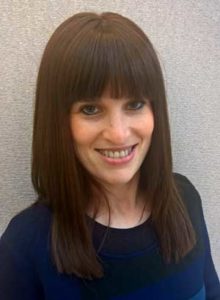
I am a UKCP registered trauma informed Biodynamic Body psychotherapist. I received a Post Graduate Diploma in Biodynamic Psychotherapy from LSBP
I work with individuals providing face-to-face psychotherapy sessions as well as virtually in the UK and overseas. My theoretical framework is Biodynamic, relational, humanistic and integrative.
I am on the therapeutic team at Chana Charity, the leading fertility support organisation for the Jewish community in the UK (chana.org.uk), and have specialist training and expertise in fertility and reproductive health issues.
Our minds and bodies are intrinsically interwoven, and what impacts one will in turn influence the other. Body Psychotherapy addresses clients holistically on all levels – mentally, physically and emotionally.
Body Psychotherapy is an embodied therapeutic approach built on the understanding that our minds and bodies work as one and cannot be separated.
Often our bodies hold onto past unresolved conflicts. Merely talking doesn’t always help us to reach a place of healing and transformation. We know with our minds, but our physiology sometimes feels out of sync.
Body Psychotherapy invites us to acknowledge unexpressed feelings which we carry in our bodies. Reintegrating body and mind so that we can access our profound inner authenticity – our true self.
I have a comprehensive background in Well-Woman personal training and physical therapy. I have worked extensively with pre- and post-natal health and fitness issues including pelvic floor rehabilitation and diastasis recti repair.
I am a Metacognitive specialist with over 10 years’ experience working in and supporting a variety of Secondary school settings in London. I have broad experience working with neurodiverse young adults and offers support to parents to help them understand and come to terms with their children’s unique strengths and challenges.
In school settings I discovered many students falling between the cracks, unable to access their learning they were writing themselves off as ‘dumb’. However, when students began to experience their mind as being more like a muscle, which they could develop and improve, they began to challenge their long-held beliefs of their limitations and they started to experience themselves making progress.
When students experience difficulties with learning, it is usually possible to pinpoint where their metacognitive areas of weakness are. There could be difficulties with focus and concentration, poor working memory, poor auditory learning skills, general executive functioning difficulties, poor logic and reasoning skills, limited planning behaviours, or flexible thinking issues, to name a few. These are all treatable, and with the right support, students learn to develop their skill set, overcome their challenges and make good progress. They learn to self-determine, rather than be limited by the expectations of others, and self-identify what they can do to responsibly develop, both academically and socially. We can enable each child/ young adult to find their unique ‘key’ to success at school, with their friends and, as they grow, in their adult life.
